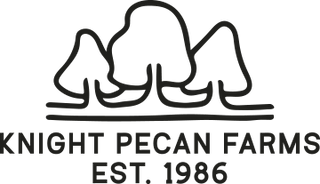Did you know that pecans are the only native major tree nut in North America? Dating back to the 1500s, these delicious and nutritious nuts have a rich history in America where they have been an important food source for Indigenous peoples for thousands of years.
Today, pecans are a popular snack and ingredient in many family-favorite dishes, and also renowned for their significant number of health benefits. But how did they become such an important part of our diets?

Native American Staple
As North America’s only major native nut tree, Native Americans were the first to cultivate and use wild pecans, becoming a favored resource due to the nut’s accessibility by waterway, ease of shelling over other North American nut species, and of course, their great taste.
Originating from the Algonquin tribe’s word “pacane,” which means “a nut too hard to crack by hand,” native pecan nuts were used in a variety of ways, including being roasted, boiled, or ground into flour. With a fall harvest and nutrient-packed fruit, pecans were a necessary staple for tribes during the winter months. The bark and leaves of the tree were also used for medicinal purposes, including treatment of ringworm, tuberculosis, and other ailments.
European Discovery
Europeans first encountered pecans in the 16th century, when Spanish explorers came across the nut in what is now Louisiana, Texas and Mexico. As pecans grew in popularity, colonists realized the economic potential of exporting the nut to their European counterparts. They soon became an important trade item after being introduced to Europe, where they were treated as a delicacy of the Americas.
18th and 19th Century Cultivation
Pecan cultivation began in the 18th century, when French settlers in Louisiana started planting pecan trees. The trees thrived in the southern United States, and by the 19th century, pecans had become an important crop and flourishing industry in the region.
As they grew in popularity and demand, farmers began the process of grafting wild pecans to produce the best pecans possible. Unlike other trees, pecans don’t reproduce from seeds, so grafting is necessary for the propagation process. Grafting involves cutting off most or all of the top of growing trees and placing new graftwood at the cut, producing a new tree top and a variety of nut. Today, there are more than 500 different types of pecans.

Image Source: Noble Research Institute
Often harvested by hand, the nuts were then sold at local markets or shipped to other parts of the country. They were (and still are to this day) used in a variety of dishes, including pies, cakes, and other desserts.
Try Our Pawnee and Kanza Varieties
Modern Pecan Farming
Today, the United States is the largest producer of pecans, producing about 80% of the the world’s crop with most coming from southern states such as Texas, Georgia, and Oklahoma. Pecans are still harvested by hand, but modern farming techniques have made the process more efficient.
Rather than an essential part of the diet like they were a few hundred years ago, pecans are now a popular snack and ingredient in many dishes. On top of that, they’re known for their multitude of health benefits. Shelled pecans are high in healthy fats, fiber, and protein, and have been shown to help lower cholesterol and blood sugar levels.

Pecans in Oklahoma
Oklahoma has a long history of pecan farming, with many small family farms like ours producing high-quality nuts grown where pecans grow best.
These native nuts are an important part of Oklahoma's agricultural economy, and the state is known for producing some of the best pecans in the country. Of the 15 pecan-producing states in the U.S., Oklahoma routinely ranks second in native pecan production and fourth to sixth in overall pecan production.
In 1927, the Oklahoma Pecan Growers Association was established to provide access to pecan farming resources, opportunities, and community for Oklahoma pecan growers. Today, our very own Bob Knight is the president of the association, helping to support the growth of Oklahoma’s pecan farms and the industry as a whole.

If you're interested in trying Oklahoma pecans for yourself, we offer a variety of tasty pecans to choose from right here on our website, as well as at local farmers' markets and distributors, and our seasonal pecan stand (opened November through April 1).
The history of pecans is a rich and fascinating one, spanning thousands of years and multiple cultures. Today, they’re enjoyed around the world for their delicious flavor and health benefits, and they continue to be an important part of our diets. And for some of the best fresh pecans out there, head to our online store to have some delivered to your door.



